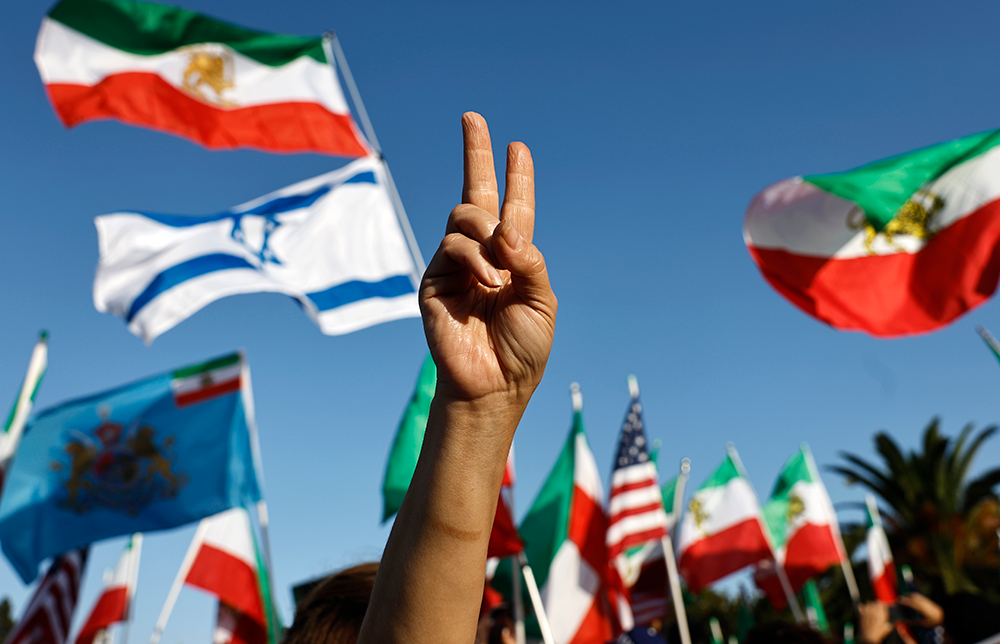Relations between China and Russia are going from strength to strength – or so they say. In reality, the strain is beginning to show. ‘Against the backdrop of accelerating changes unseen in a century, China is willing to further strengthen multilateral coordination with Russia,’ said Xinhua, the Chinese state news agency after a meeting on Wednesday in Moscow between premier Li Qiang and Vladimir Putin. Far more intriguing, though, was what wasn’t said, and which suggests a growing tensions in their ‘no limits’ partnership.
First there were the cyber spies. A few days before Li arrived in Russia, Kaspersky, a Moscow-based cyber security company, suggested that Chinese state-linked hackers had targeted dozens of computers belonging to Russian tech companies and state agencies. Kaspersky dubbed the espionage campaign EastWind, and while not explicitly blaming China (precise attribution is always tricky), it said that the tools used were associated with Chinese groups. The US has suggested that Kaspersky is linked to Russian intelligence, which the company strongly denies, but the timing of the report – indeed its very existence – is intriguing, given Putin’s increasingly dictatorial control of Russia.
China is now barely bothering to treat Moscow as an equal
Then there is the Power of Siberia 2 gas pipeline project, once hailed as a centrepiece of their burgeoning economic relationship and designed to carry 50 billion cubic metres of natural gas a year from the Yamal region in northern Russia to China, by way of Mongolia. Although conceived more than a decade ago, it has taken on a new urgency for Moscow after the invasion of Ukraine, with the Kremlin eager to double gas sales to China. It wants to compensate for the loss of sales to Europe, which used to take around 80 per cent of Russian gas exports. The pipeline project has been bogged down in bickering over the price of the gas and who will pay for construction, with Beijing taking a very hard line. It was not mentioned in the bland communique this week and now appears to be dead.
Russian nationalists were irked last year when Beijing decreed that vast areas of Russia’s Amur region and its Far East, snatched from the Qing Dynasty by Tsarist Russia during the nineteenth century, would henceforth be referred to on Chinese maps by their former Chinese names. Hence Vladivostok became Haishenwai, or Sea Cucumber Cliff. This has played to Russian paranoia about its thinly populated and economically deprived border regions being subsumed by China, with some nationalists suggesting that Beijing’s tactic is to bide its time until Russia collapses.
Premier Li, China’s second ranking official behind President Xi Jinping, said bilateral relations had reached an ‘unprecedentedly high level’. Yet there was no direct mention of the Ukraine war, though Li’s meeting with Putin came amid Ukraine’s audacious snatching of land in the Kursk region – the first occupation of Russian territory since the second world war, and just a few hours before Russia repelled one of Ukraine’s largest ever drone attacks on the Russian capital.
Last month, Nato accused China of being a ‘decisive enabler of Russia’s war’ by providing equipment, microelectronics and tools for the Kremlin’s war machine. As the war has ground on, Moscow has become increasingly dependent on China economically and diplomatically. Beijing has effectively underwritten the aggression with sharply increased trade, cushioning Putin from Western sanctions. The value of two-way trade in 2023 hit a record $240 billion (£182 billion), with half of Russia’s oil and related petroleum exports going to China.
Beijing and Moscow increasingly define their relationship in terms of opposition to Western democracies – and to the US in particular. They share deep-seated resentments and a vision of restoring imperial greatness. Their joint military drills are increasingly complex and geographically widespread, with one recent naval exercise in the Gulf of Oman joined by Iran. After Moscow, Li was going on to Belarus, with whose army Chinese troops last month conducted joint exercises close to the border with Poland.
All of this is deeply troubling. Two factors in particular though are becoming increasingly apparent and were underlined by Li’s visit to Moscow: first is that for all the bland commitments to ‘inject strong momentum’ into the relationship, China is now barely bothering to treat Moscow as an equal. Beijing is calling the shots. Secondly, despite a shared loathing of the West – and the marriage of convenience this has created – the fault lines in the relationship are never far from the surface.








Comments